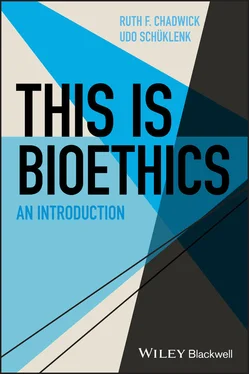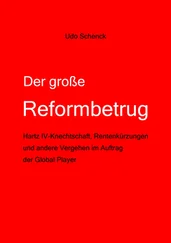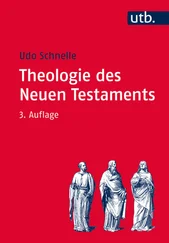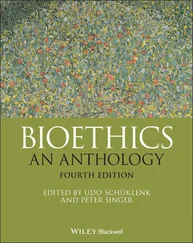1.11 There are a number of problems with religious approaches to ethics. An obvious one is that many competing religions and claims about God or gods exist. It is in the nature of these claims that they cannot be tested. They rely entirely on belief. Given that we cannot know which of these gods – if any – is the right one, we are better off, in assuming with Plato that even if a God or gods exist, they would also need sound ethical reasons for their ethical judgments. Many people doubt the very idea that a God exists, mostly because of the enduring nature of the terrible evil that persists in the world. This just does not seem to gel well with the idea of an all‐knowing, all‐powerful and good God of most monotheistic religions. In any case, we do not have to settle the difficult question of whether a God or gods exist, thanks to an ancient Greek philosopher, Plato.
1.12 Plato created about 380 years before reportedly the historical Jesus was born a now‐famous dialogue aimed at addressing various questions to do with the relationship between God or gods and ethics. The dialogue is called Euthyphro 11 and plays out between Plato’s teacher, Socrates and the said Euthyphro. The story essentially takes place at a plaza in front of a court house. Euthyphro busily prosecutes no less than his father for manslaughter committed on a murderer.
1.13 Euthyphro’s relatives thoroughly disagree with his actions. When Socrates (i.e. Plato’s protagonist) questions Euthyphro, he replies, criticizing his relatives, ‘Which shows, Socrates, how little they know what the gods think about piety and impiety.’ The dialogue goes on for some time, and during the course of it Socrates makes among others a crucial point that is salient to the question of the relationship between religion and ethics: He asks whether something is good because the God or the gods approve of it, or does God (or do the gods) approve of it because it is good. This is a crucial question, because if something is good only because God or the gods approve of it, ultimately what is good would depend entirely on God’s or the gods’ preferences. For all we know God (or the gods) could have approved of Euthyphro’s actions. Slavery might be ok, too. This take implies that the act in question is neither intrinsically good nor bad, because it is entirely dependent on what God’s or the gods’ take is on the issue at hand. It is doubtful that you consider this answer persuasive. Surely, if God or gods exist, they need to have some sort of ethical reason for saying that something is morally wrong. Their answer cannot be completely arbitrary.
1.14 This leads us to an alternative answer to the question. That answer suggests that some actions are good or bad as such, and that we are able to evaluate such acts by means of using the tools of ethical analysis. Or, as Gordon Graham suggests, ‘Plato’s arguments in Euthyphro seems [sic!] to show that … religion cannot logically serve as a ground for morality’ (Graham 2004, 185–188).
1.15 There are other problems, too. Most religious authoritative scriptures, such as for instance the Qur’an 12 or the Bible 13 , do not actually provide us with clear guidance to address most ethical questions that we face during our lives. Even if, miraculously, all of us would agree tomorrow that one of these two documents, and not the Hindu’s Bhagavat Gita 14 is the true God’s source of wisdom, we would discover that it actually would not help us to solve the ethical problem our NGO‐manager faces. We might as well go back to Plato then and try to figure out ourselves what is right and what is wrong, what is a good action and what is a bad one.
1.16 To what extent then will religious arguments feature in this book? Not to a great extent. It is true that extensive literature, for instance on the stances of Roman Catholicism, Judaism and Islam on assisted dying, exists. However, these kinds of arguments will not be dealt with in great depth in this book. The main reason for this is that these kinds of arguments are only of relatively uncontroversial moral significance to a subset of people, namely those who subscribe to the views expressed on this issue in the authoritative guidance documents published by these faiths. Obviously, Catholic arguments derived from the Bible only matter to Catholics or other Christians who accept the authoritative status of the Bible. The same holds true for Jewish and Muslim believers and their religious texts. Lisa Sowle Cahill, a professor of Christian Ethics, got it right when she wrote 15 (Sowle Cahill 1990):
Public bioethical discourse (or public policy discourse) is actually a meeting ground of the diverse moral traditions that make up our society. Some of these moral traditions have religious inspiration, but that does not necessarily disqualify them as contributors to the broader discussion. Their contributions will be appropriate and effective to the extent that they can be articulated in terms with a broad if not universal appeal. In other words, faith language that offers a particular tradition's beliefs about God as the sole warrant for moral conclusions will convince only members of that tradition.
1.17 What we are looking for, therefore, are reasons that can best be described as public reasons 16 . Public reasons don’t rely on us making metaphysical assumptions about gods, afterlives or any number of other beliefs requiring a significant leap of faith, so to speak. Instead they aim to persuade us by way of arguments that reasonably educated people from different cultural and religious backgrounds or other ideological persuasions can accept (Quong 2013). This approach is much in line with thinking going back to the seventeenth century, drawing a clear line between religion and the secular state. The state by necessity must remain neutral with regard to religious affairs, it cannot privilege one religion over another (Locke 1689). That way the citizens’ right to hold their own religious beliefs is protected. If the state decided to privilege one religious viewpoint over another, inevitably unjust discrimination of the not‐privileged religious point of view would follow. This view is supported by many judgments passed by the highest courts in various countries. For instance, a Canadian Supreme Court judgment notes, ‘the State is in no position to be, nor should it become, the arbiter of religious dogma’ (Syndicat Northcrest v. Amselem 2004).That makes perfect sense; how could judges possibly adjudicate conflicting views between religious dicta or even within a religion? They are not trained to do so. Accordingly, secular societies remain neutral vis a vis religious points of view, and public discourse relies on public reason based arguments. We will do the same in this book.
1.18 Let us turn now to the complex relationship between the law and ethics.
1.19 Although medical lawyers work on bioethical issues, this is not a book about law. Nevertheless it is important briefly to consider the relationship between law and ethics and also the difference between legal and moral rights. Bioethics is a field in which reference is frequently made to ground‐breaking legal cases (e.g. Roe v Wade in the United States), and to relevant legislation such as the Mental Health Act in the United Kingdom. To say of a proposed action ‘That would be unlawful’ is, however, not a knock‐down argument against it.
1.20 Although you might hope that the law is always ethical and/or just, reality quickly proves otherwise. The Nazis had laws discriminating unjustly against a whole range of German citizens at the time. Just think of their 1933 Law for the prevention of Hereditary Diseased Offspring. The Nazis used this law to justify the forcible sterilization of tens of thousands of Germans, even of many who did not suffer from hereditary conditions (Proctor 1988, Chapter 4). Apartheid South Africa had racist laws in place that one would hope will never reoccur on this planet. And before we get too optimistic about the state of laws in democratic societies, the Nazi sterilization laws were at the time widely applauded by eugenicists with direct lines to governments in many democratic countries. In fact, it turned out to be difficult to prosecute certain crimes committed against vulnerable people as war crimes, because similar laws were at the time in effect, for instance in the USA (Proctor 1988, 117).
Читать дальше












